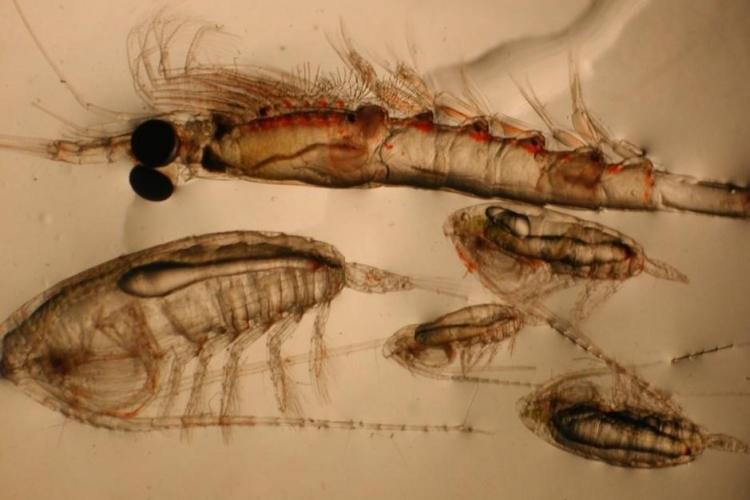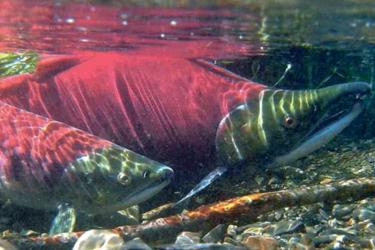Zooplankton represent the animal portion of the plankton, the living community of plants and animals that drift or float in the ocean. We study zooplankton because they occupy an important place in the food web. Zooplankton form a link between the plants in the water, the phytoplankton, and all other organisms that live in the sea. Fish, in particular, rely upon zooplankton as a critical food source that allows them to grow from tiny larvae into juveniles and adults.

A zooplankton sampling bongo net being deployed in the Gulf of Alaska.
In the field, we collect zooplankton primarily using nets of different mesh sizes designed to capture both small and large species. We collect samples over large survey areas in order to assess the distribution, abundance, and composition of the zooplankton community. Each of these pieces of information tells us where, how much, and what type of food larval and juvenile fish may be encountering as they grow into adults.
In the laboratory, we identify zooplankton to species and indicate the proportion of each species found in the environment. We also collect other information from our samples. We assess the condition of zooplankton by analyzing their fat content and we also examine the guts of larval and juvenile fish so we can better understand what the zooplankton community found in the water may be eating.
Our research focuses on whole ecosystems through our participation in EcoFOCI (Ecosystems and Fisheries Oceanography Coordinated Investigations) in partnership with NOAA Research's Pacific Marine Environmental Laboratory.

